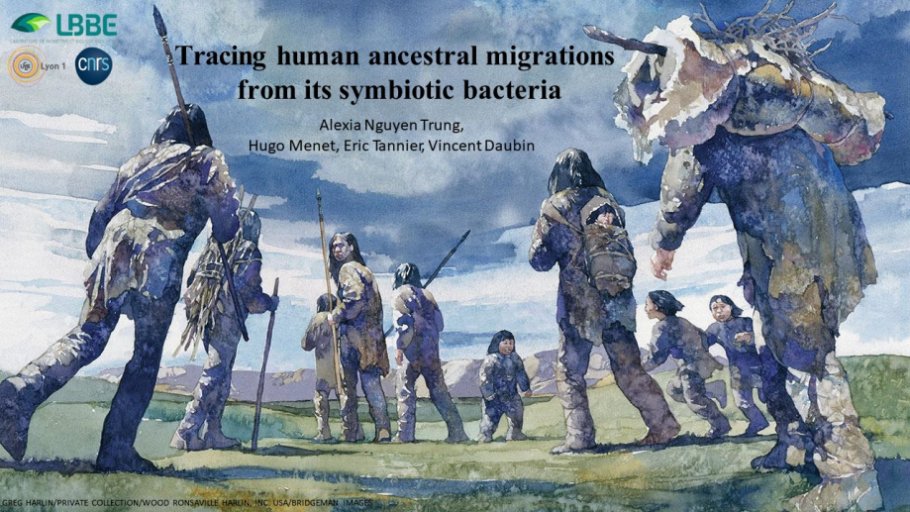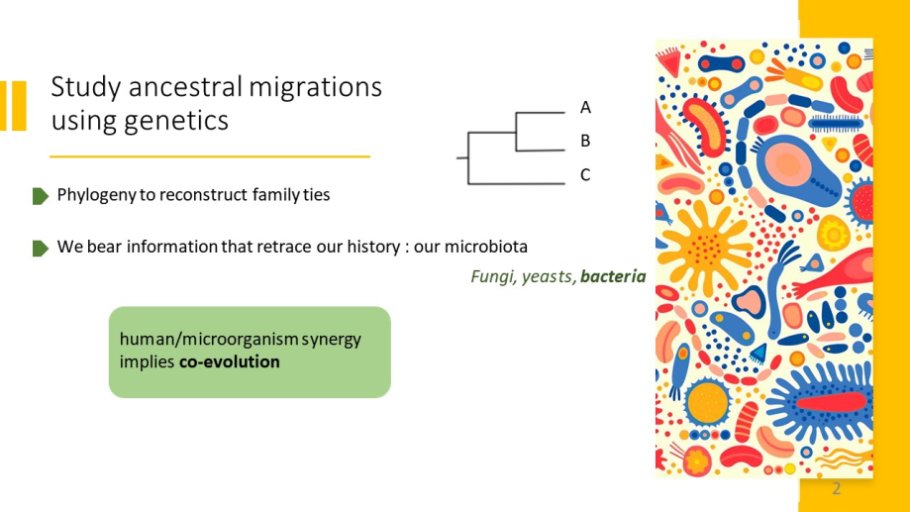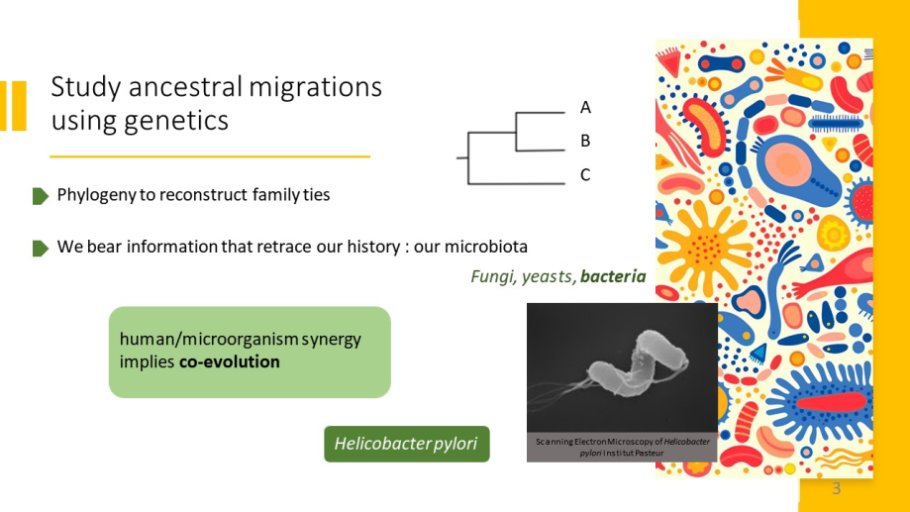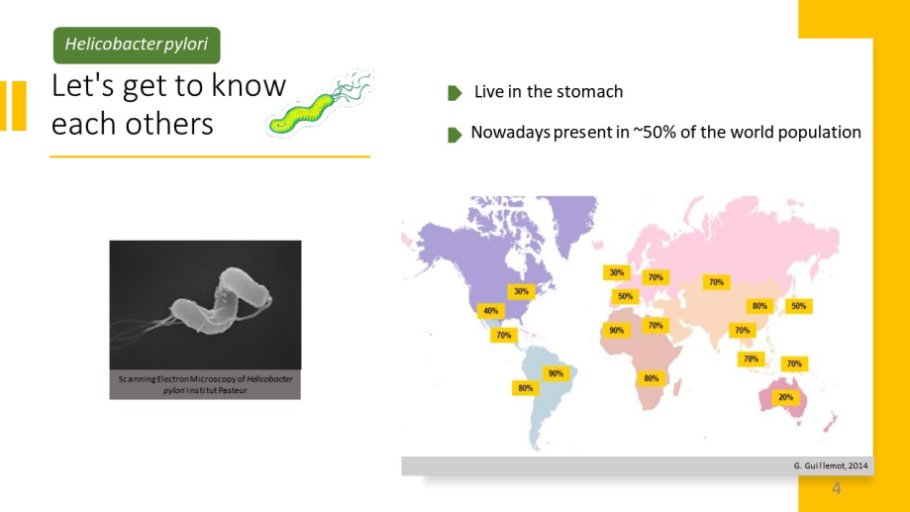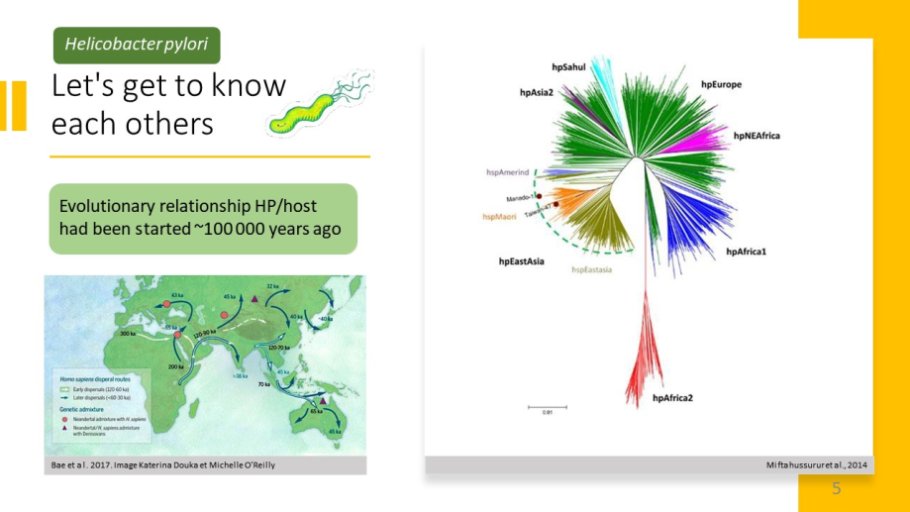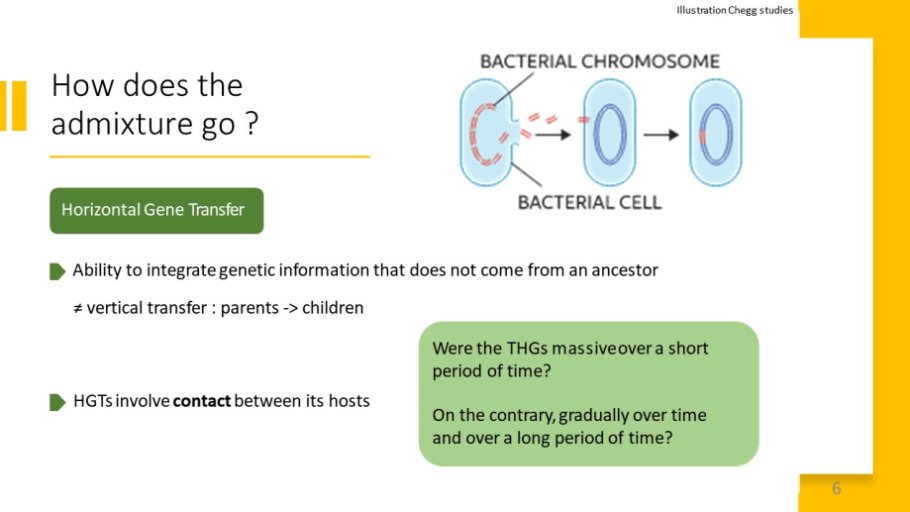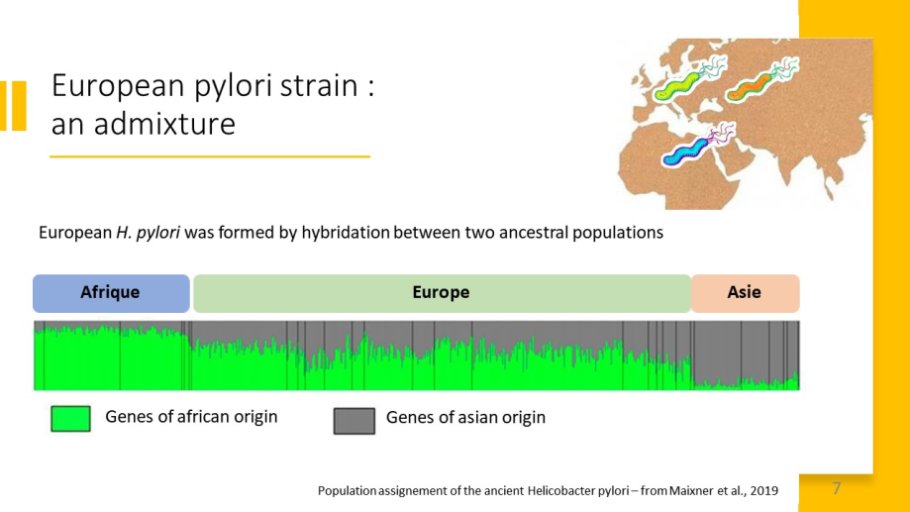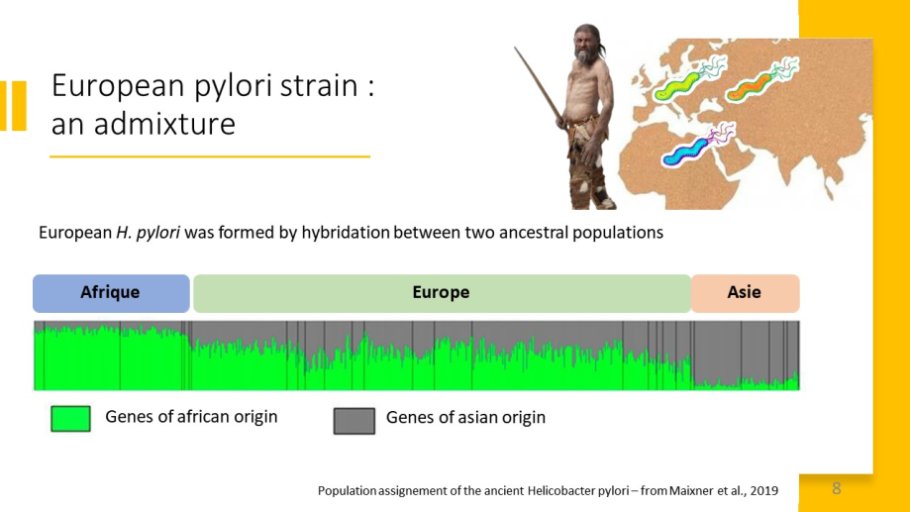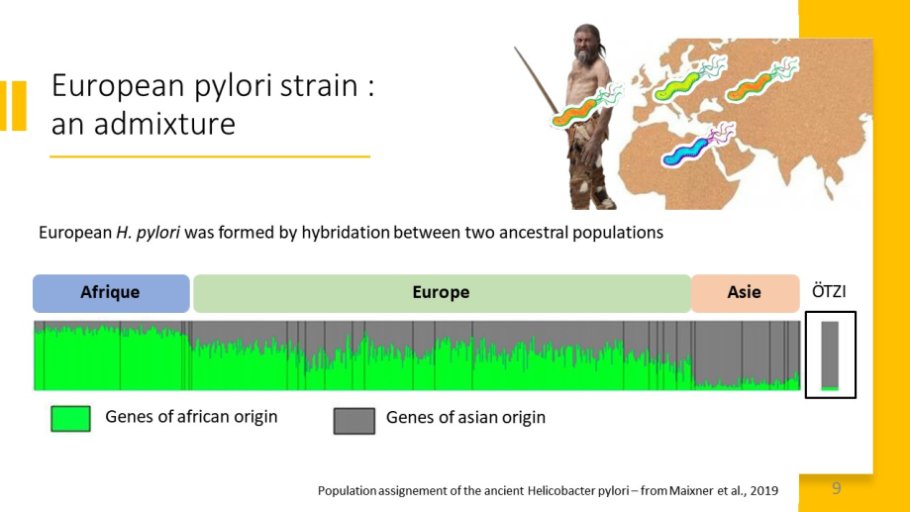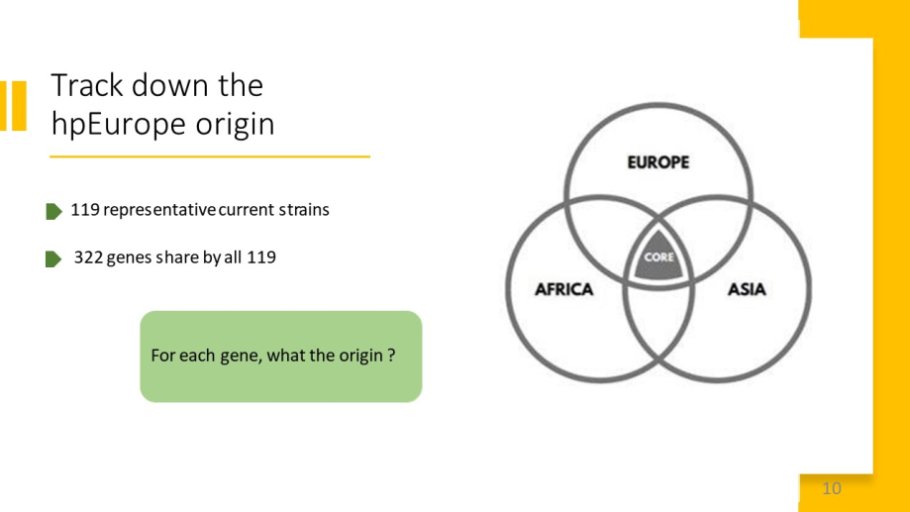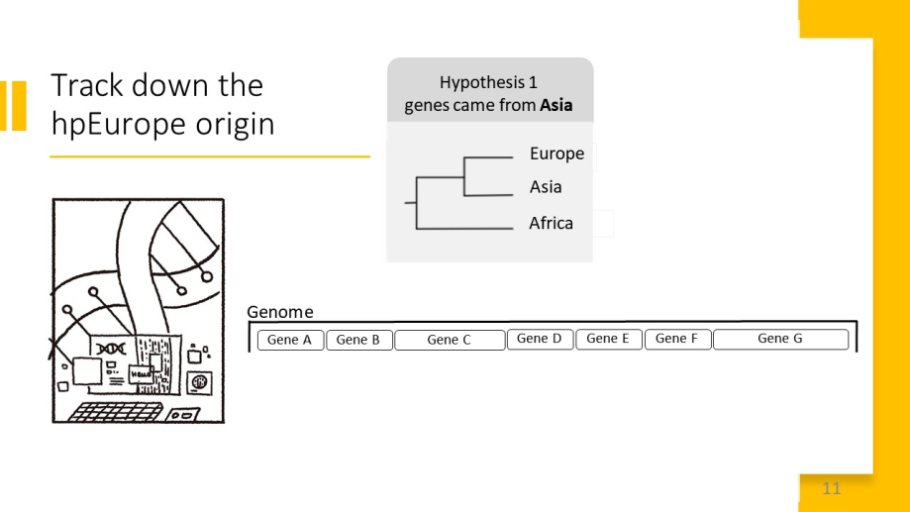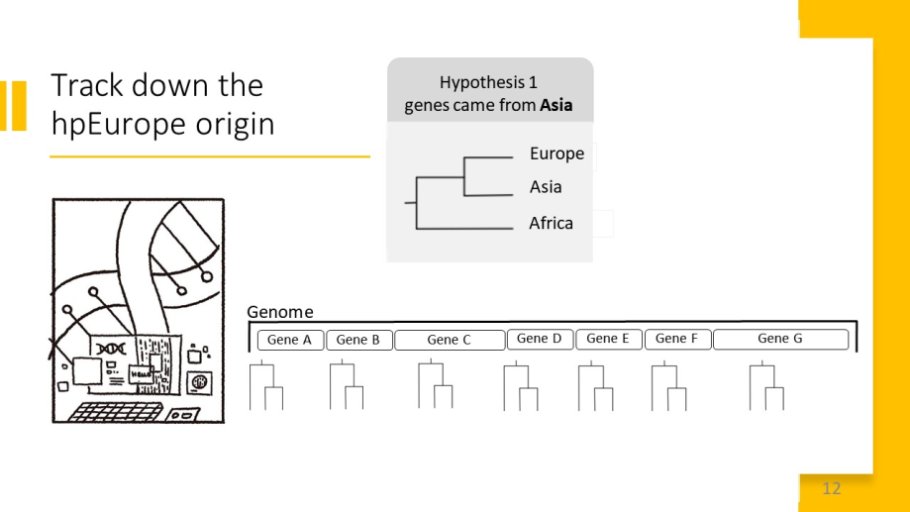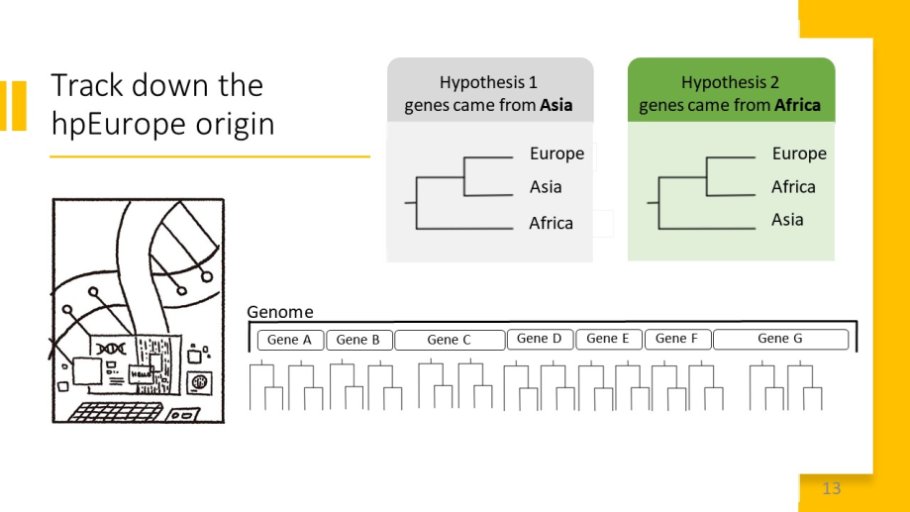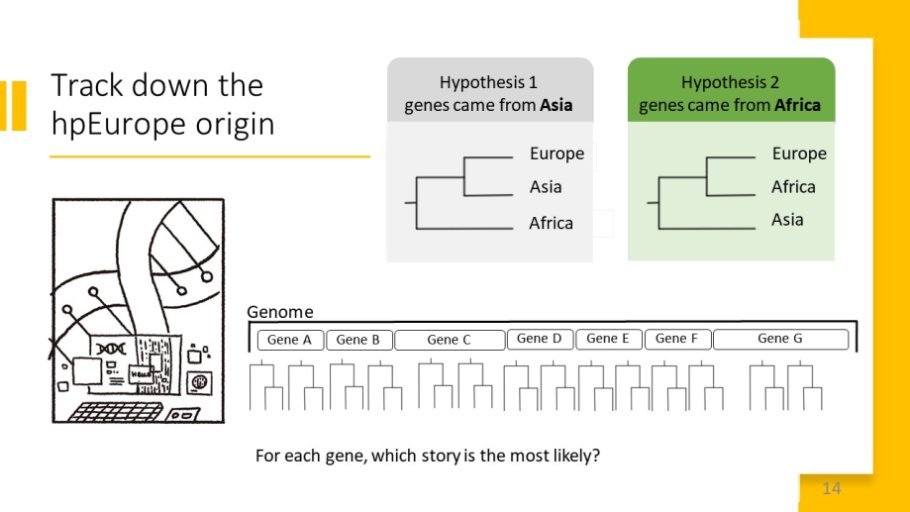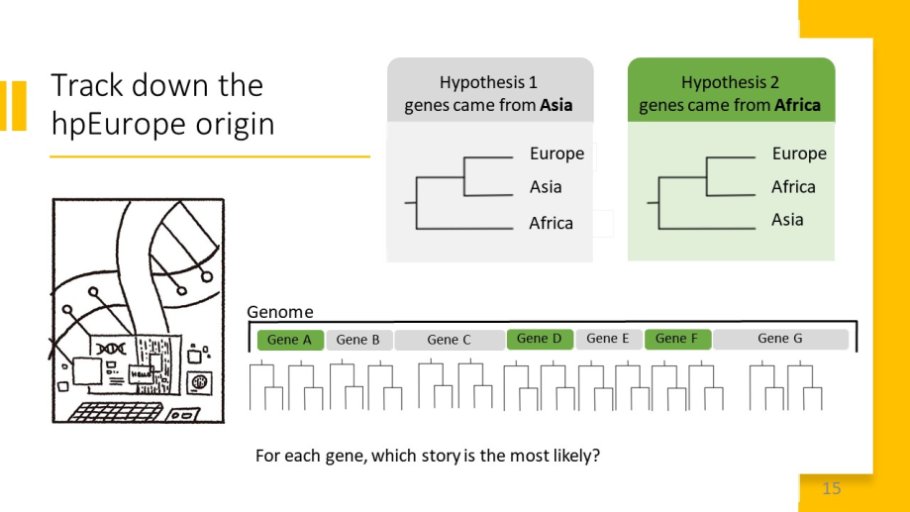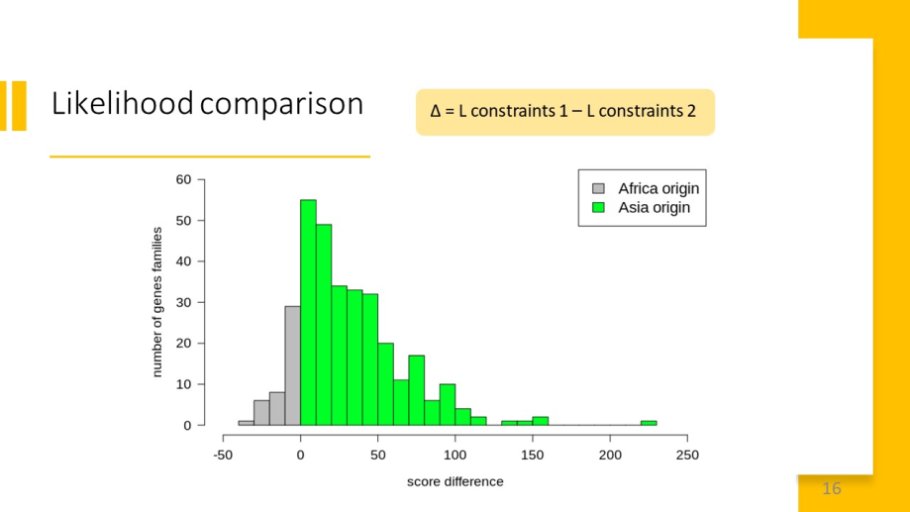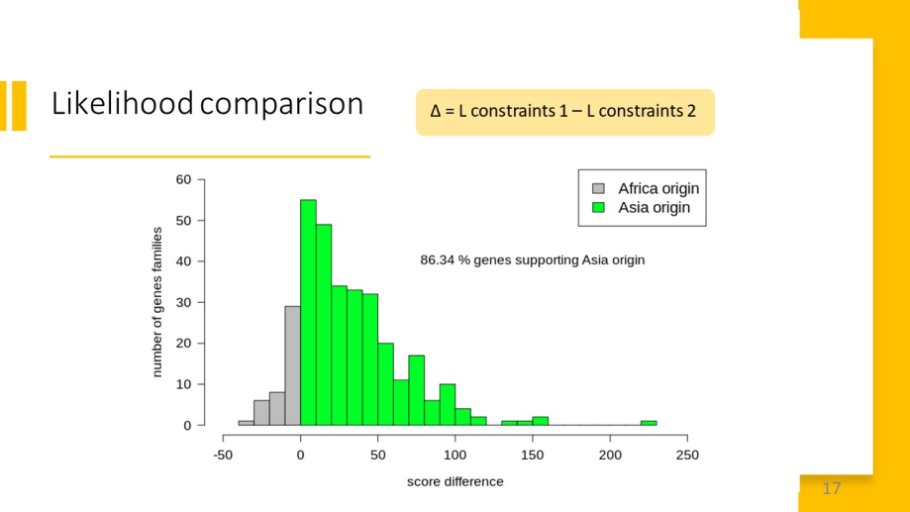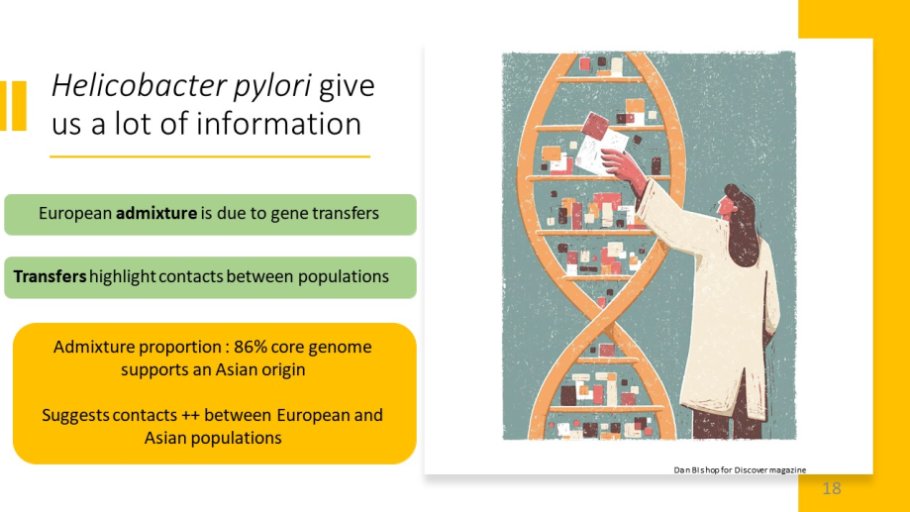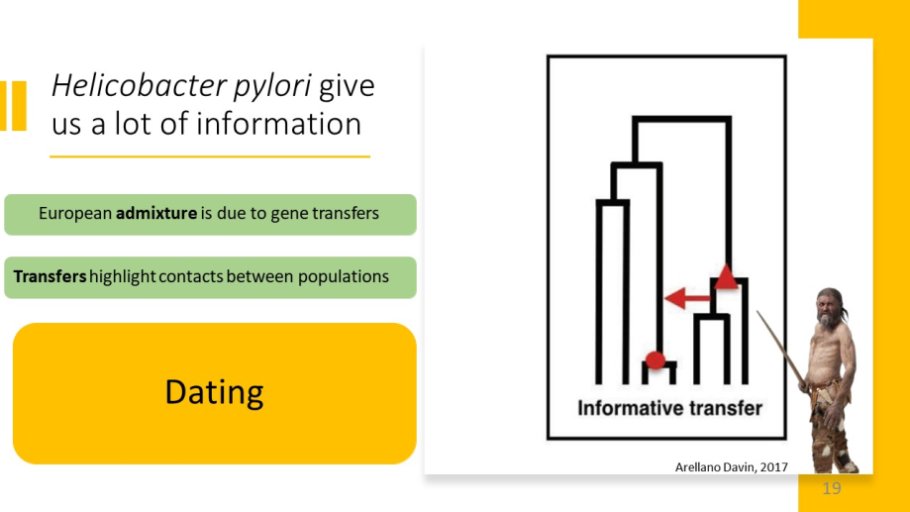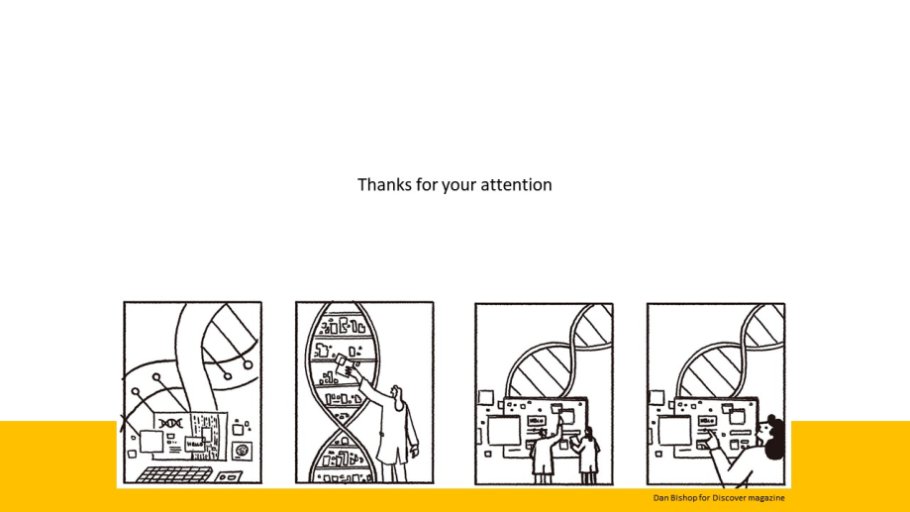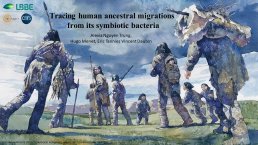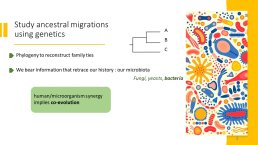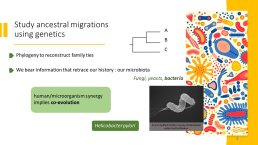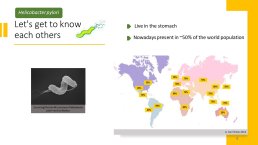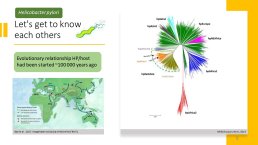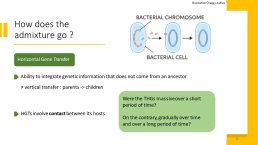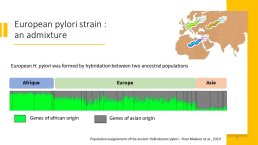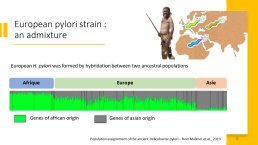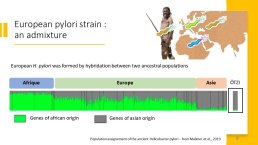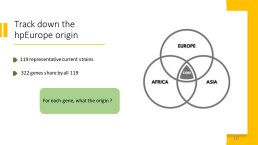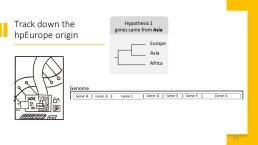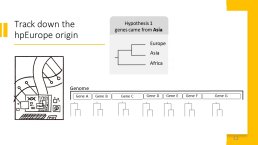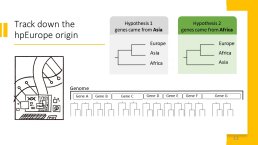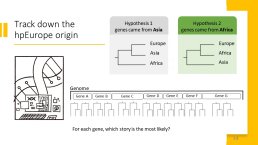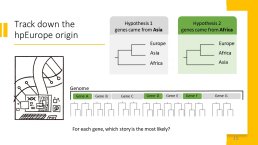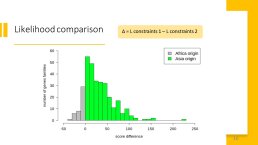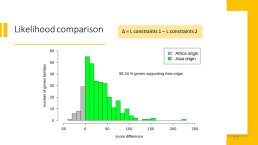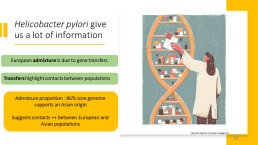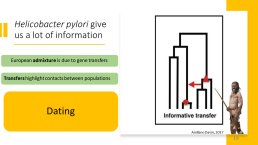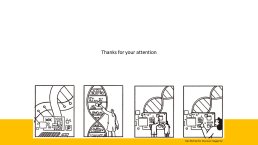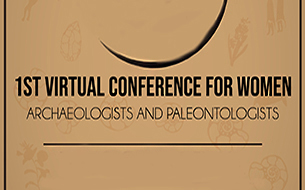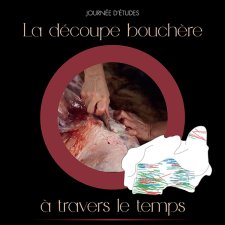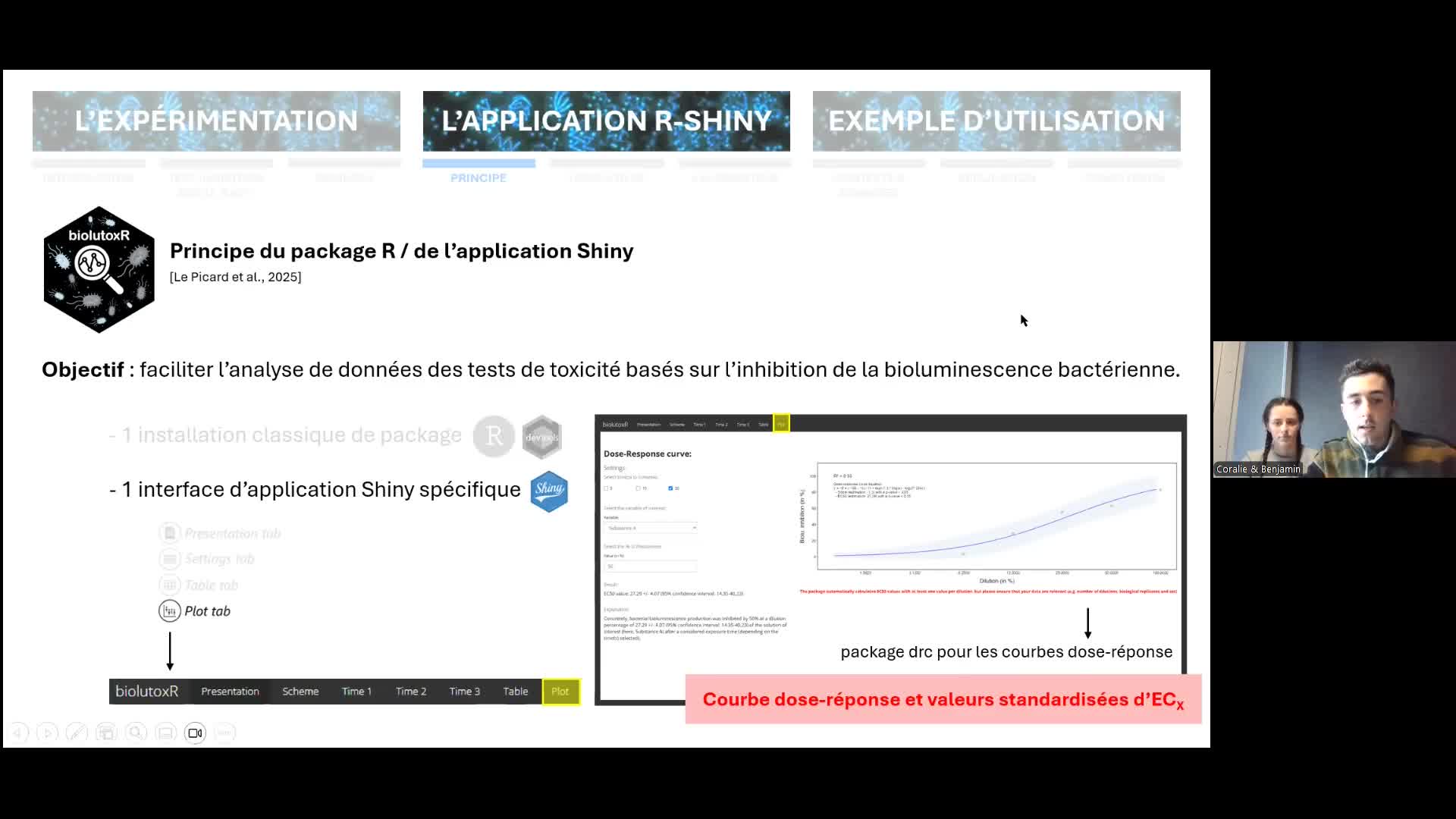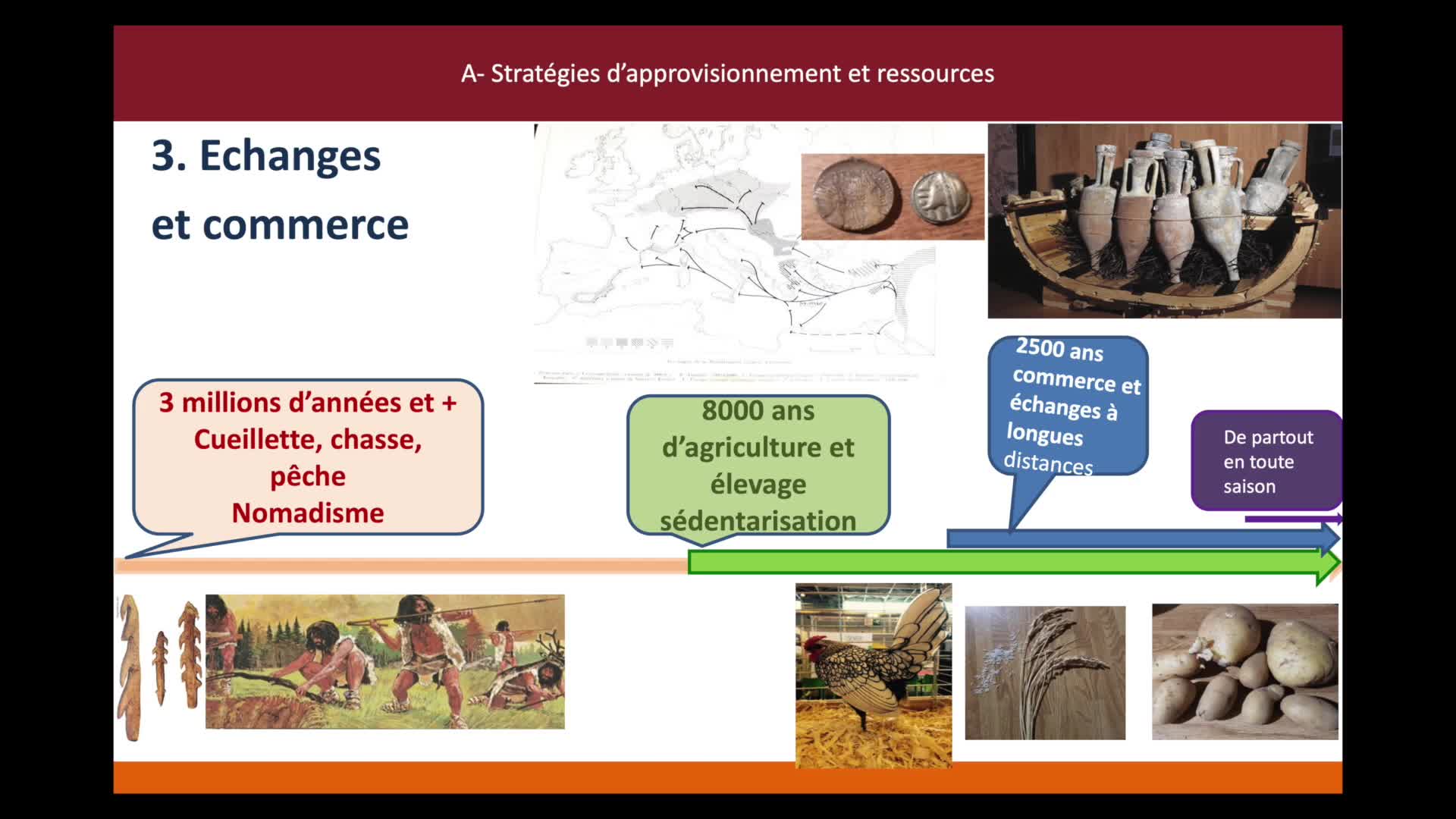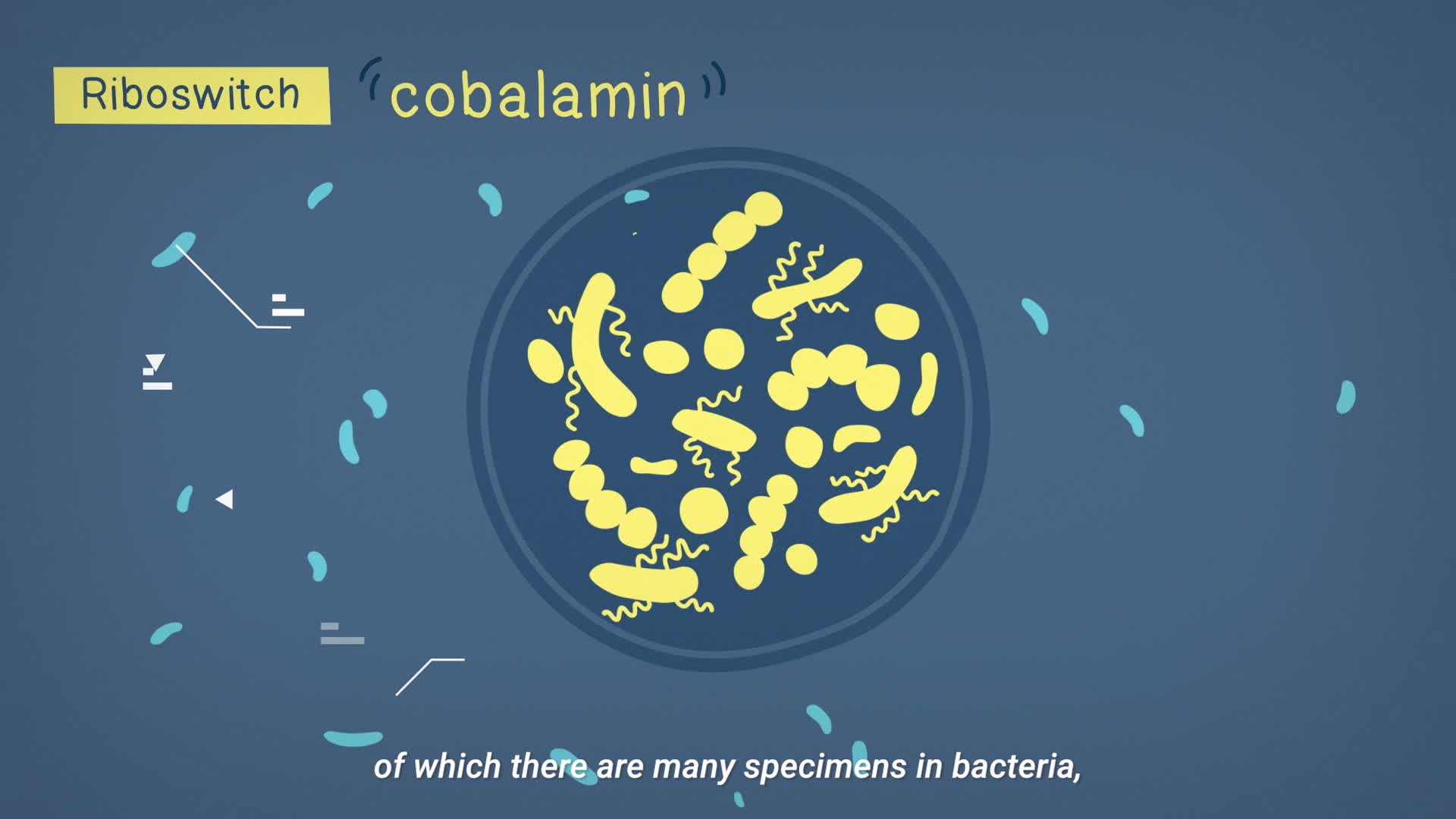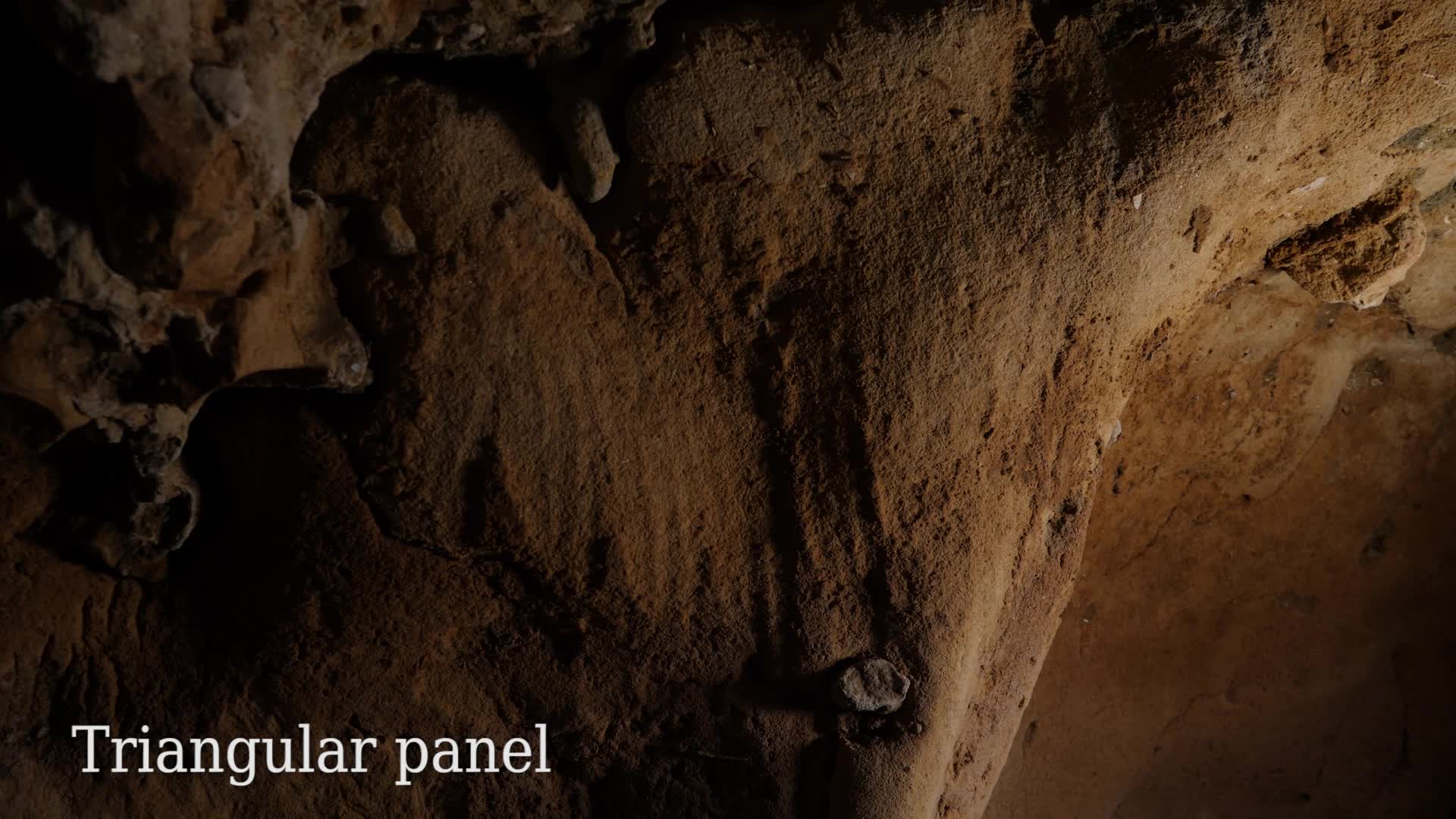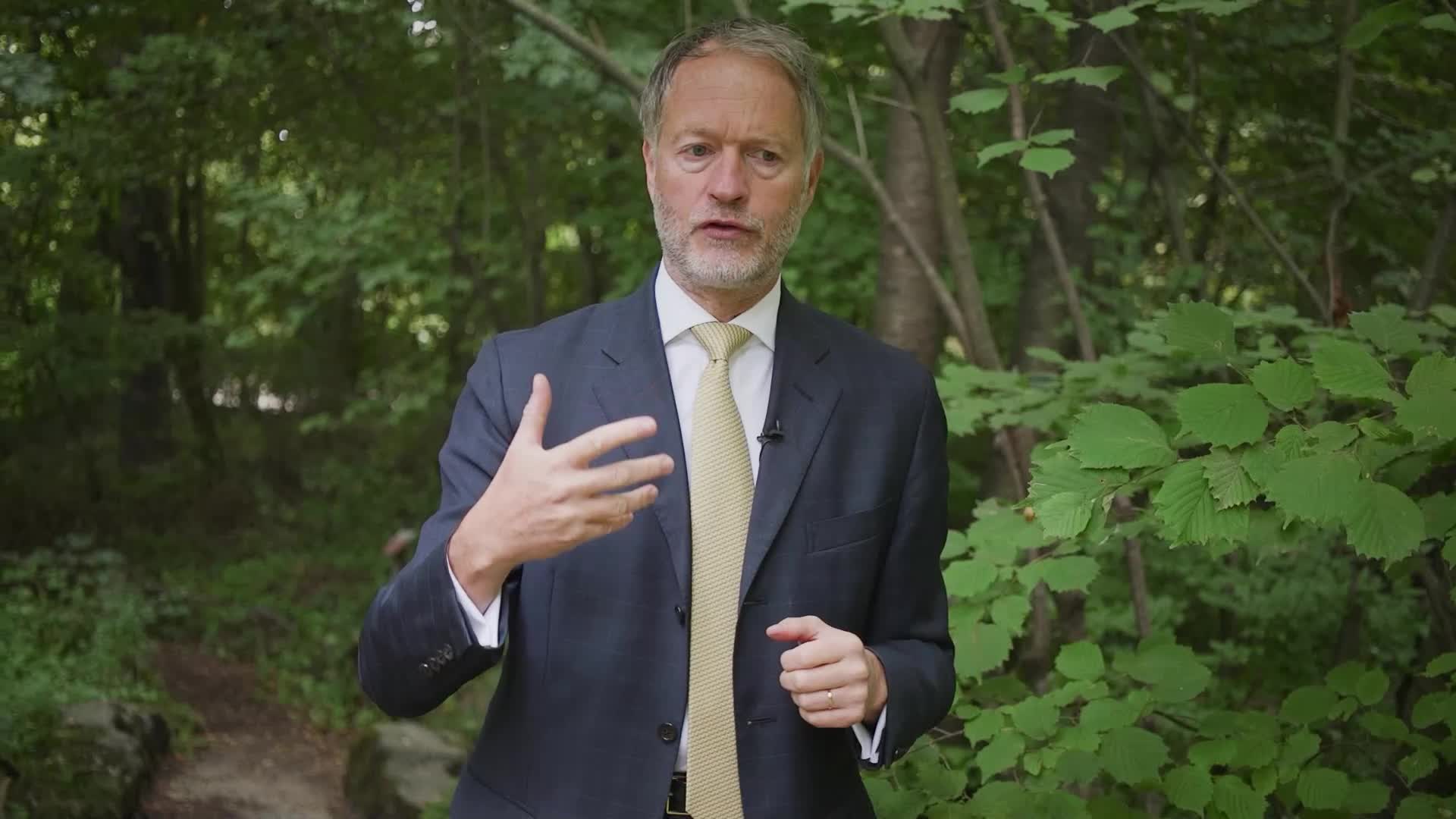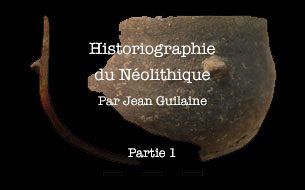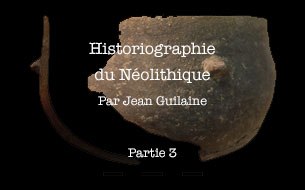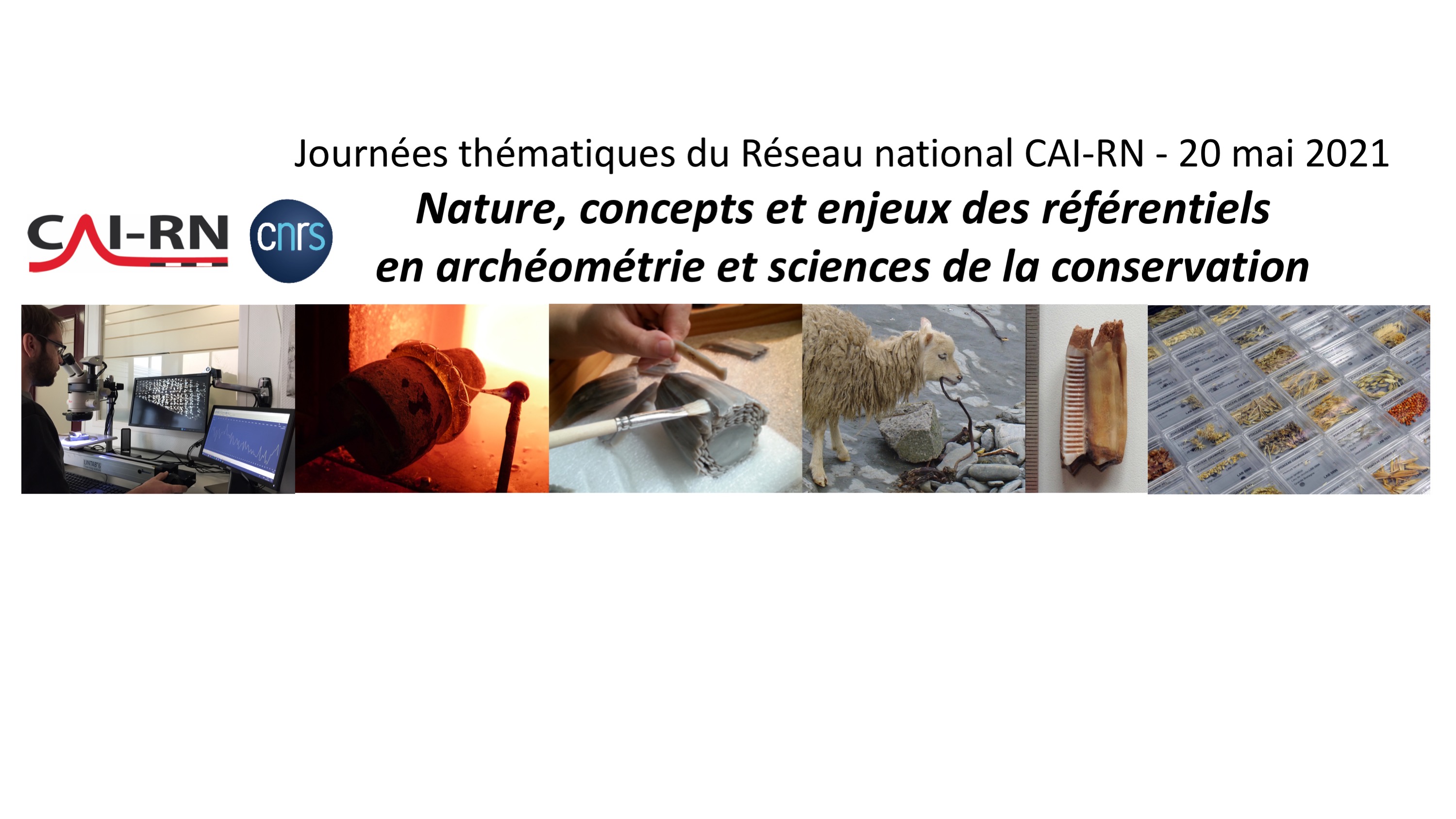Notice
Tracing Human Ancestral Migration from its Symbiotic Bacteria / Alexia Nguyen Trung
- document 1 document 2 document 3
- niveau 1 niveau 2 niveau 3
Descriptif
Tracing Human Ancestral Migration from its Symbiotic Bacteria / Alexia Nguyen Trung, in colloque "1st Virtual Conference for Women Archaeologists and Paleontologists. Nouveaux apports à l’étude des populations et environnements passés" organisé par le laboratoire Travaux et Recherches Archéologiques sur les Cultures, les Espaces et les Sociétés (TRACES) de l’Université Toulouse Jean Jaurès et le laboratoire Paléontologie Évolution Paléoécosystèmes (PALEVOPRIM) de l'Université de Poitiers, sous la responsabilité scientifique de Julie Bachellerie, Ana Belén Galán López (Traces), Émilie Berlioz et Margot Louail (Palevoprim). Université Toulouse Jean Jaurès, 8-9 mars 2021.
Session 2 : Occupation of territories and population mobility.
[Conférence enregistrée en distanciel].
Our understandingof the history of human migrations around the globe has greatly benefited fromthe development of human population genetics. It has revealed the routes ofcolonization and striking events of admixture of populations on the way. Manyspecies have accompanied humans on their journey, particularly microbes closelyassociated to their human host. H. pylori is present in the stomach of50% of humans. Its transmission is vertical, since it occurs particularlyduring childhood within the family, limiting the spread of a strain to itscarrier human group. Previous work has established that its presence in Homosapiens dates back to before the major human migrations and that H.pylori accompanied its host during the settlement process of continents, tothe point that the phylogeny traces in broad lines the history of humanmigrations since Out Of Africa. We have developed tools to reconstructthe history of bacterial genomes and particularly Horizontal Gene Transfer,which is the ability of bacteria to acquire genetic material from other strainsor species. We have shown the efficiency of these methods for retracing ancientcontacts and dating the history of free-living bacteria and we use the sameapproach to explore the history of H. pylori. By reconstructing thehistory of a sample of representative H. pylori strains, we use thesemethods to detail the historical contacts between strains and interpret theseevents in terms of contacts between ancestral human populations. We focus onthe complex history of European populations taking advantage of the ancientgenome of H. pylori extracted from Ötzi, the iceman, which dates back to around3000 BCA. Ötzi's H. pylori shows clear relationships with strains thatare found today in Asia. During this presentation we will detail the method anddiscuss our results on the history of human mobilities in Europe, through theprism of symbiotic bacteria.
Thème
Documentation
Références documentaires
MAIXNER, Frank, THORELL, Kaisa, GRANEHÄLL, Lena, et al. (2019). Helicobacter pylori in ancient human remains, World journal of gastroenterology, 42, vol. 25, no 42, p. 6289-6298. [En ligne : https://www.ncbi.nlm.nih.gov/pmc/articles/PMC6861846/].
ARELLANO DAVIN, Adrian (2017). Utilisation des transferts horizontaux de gènes pour dater des phylogénies. Thèse de doctorat en Phylogénétique moléculaire. Lyon, Université Claude Bernard.
BAE, Christopher J., DOUKA, Katerina, PETRAGLIA, Michael D. (2017). On the origin of modern humans: Asian perspectives, Science, 6368, vol. 358. [En ligne : https://science.sciencemag.org/content/358/6368/eaai9067.full].
Liens
Programme du colloque "1st Virtual Conference for Women Archaeologists and Paleontologists" (8-9 mars 2021)
Website du Laboratoire Paléontologie Évolution Paléoécosystèmes Paléoprimatologie (PALEVOPRIM)
Livret des résumés des communications du colloque "1st Virtual Conference for Women Archaeologists and Paleontologists. Nouveaux apports à l’étude des populations et environnements passés" (8-9 mars 2021)
Site internet dédié au colloque "1st Virtual Conference for Women Archaeologists and Paleontologists" (8-9 mars 2021)
Dans la même collection
-
Sensivity analysis to morphological changes of the shoulder joint: application to percussio…
BLASI-TOCCACCELI Alicia
Sensivity analysis to morphological changes of the shoulder joint: application to percussion gestures during Oldowan debitage / Alicia Blasi-Toccacceli, in colloque "1st Virtual Conference for
-
"Ouranopithecus macedoniensis" (late Miocene, Greece): analysis of mandibular fragments using …
IOANNIDOU Melania
Ouranopithecus macedoniensis (late Miocene, Greece): analysis of mandibular fragments using 3D geometric morphometrics / Melania Ioannidou, in colloque "1st Virtual Conference for Women
-
Comminution capabilities of extant and fossil anthropoids during molar intercuspation: a preliminar…
WALKER Axelle E. C.
Comminution capabilities of extant and fossil anthropoids during molar intercuspation: a preliminary experiment using a chewing simulator / Axelle E. C. Walker, in colloque "1st Virtual Conference for
-
New sperm whale cranium from the late Miocene and a revised family attribution for the small crown …
ALFSEN Apolline
New sperm whale cranium from the late Miocene and a revised family attribution for the small crown physeteroid Thalassocetus / Apolline Alfsen, in colloque "1st Virtual Conference for Women
-
What is shaping the brain? A perspective on brain size evolution in carnivorans / Margot…
MICHAUD Margot
What is shaping the brain? A perspective on brain size evolution in carnivorans / Margot Michaud, in colloque "1st Virtual Conference for Women Archaeologists and Paleontologists. Nouveaux
-
Postnatal shape changes in the rodent mandible at a macroevolutionary scale / Morgane Dubied
DUBIED Morgane
Postnatal shape changes in the rodent mandible at a macroevolutionary scale / Morgane Dubied, in colloque "1st Virtual Conference for Women Archaeologists and Paleontologists. Nouveaux apports à l
-
Cranial vault healing in modern humans: input of archaeological and clinical data / Aliéno…
LEPETIT Aliénor
Cranial vault healing in modern humans: input of archaeological and clinical data / Aliénor Lepetit, in colloque "1st Virtual Conference for Women Archaeologists and Paleontologists. Nouveaux
-
A transdisciplinary approach to reconstruct the Nilotic socio-ecosystem in Luxor west bank during t…
NICATORE Giulia
A transdisciplinary approach to reconstruct the Nilotic socio-ecosystem in Luxor west bank during the Ptolemaic period (3rd-1st centuries BC.) / Giulia Nicatore, in colloque "1st Virtual Conference
-
From monoliths to megaliths: a new approach on the megalithic burials of southwestern France / Bosc…
BOSCUS Sarah
From monoliths to megaliths: a new approach on the megalithic burials of southwestern France / Boscus Sarah, in colloque "1st Virtual Conference for Women Archaeologists and Paleontologists. Nouveaux
-
Foragers and their symbolic landscape. Understanding the role of rock art in the territoriality of …
JOBARD Léa
Foragers and their symbolic landscape. Understanding the role of rock art in the territoriality of Later Stone Age Matobo populations / Léa Jobard, in colloque "1st Virtual Conference for Women
-
Towards a tracking of past bird seasonal migrations through geological times: what could isotopes t…
DUHAMEL Anaïs
Towards a tracking of past bird seasonal migrations through geological times: what could isotopes tell us? / Anaïs Duhamel, in colloque "1st Virtual Conference for Women Archaeologists and
-
Study of human group behaviors during the Last Glacial Maximum in the east Carpathian area from zoo…
DEMAY Laëtitia
Study of human group behaviors during the Last Glacial Maximum in the east Carpathian area from zooarchaeological remains / Laëticia Demay, in colloque "1st Virtual Conference for Women Archaeologists
Sur le même thème
-
Décharner, mettre en pièces, fracturer le gibier au Paléolithique : même menu, mêmes façons de fair…
SOULIER Marie-Cécile
BIROUSTE Clément
COSTAMAGNO Sandrine
À destination principalement des étudiantes et étudiants en archéologie ainsi que des archéozoologues, cette journée visait à mettre en lumière la diversité des pratiques de boucherie à travers le
-
biolutoxR: Un package R-Shiny pour faciliter l'analyse de données issues de tests de toxicité basés…
LE PICARD Coralie
BELLIER Benjamin
Présentation d'un outil (application shiny) de traitement des données de toxicité sur bactérie marine.
-
Les grandes étapes de l’alimentation, du Paléolithique à l’époque gauloise
FLOUEST Anne
Anne Flouest, géologue et docteure en paléoclimatologie, revient sur l’étonnante évolution des usages alimentaires du Paléolithique à l’époque gauloise.
-
-
Violences interpersonnelles dans la Vallée du Nil à la Préhistoire
CREVECOEUR Isabelle
Les ensembles funéraires nous renseignent sur la biologie des sociétés passées, leurs relations sociales et leurs comportements rituels et symboliques. Ils peuvent également nous permettre d’examiner
-
La grotte de La Roche-Cotard
Court métrage réalisé à l'occasion d'une mission dans la grotte de la Roche-Cotard en 2020.
-
-
Historiographie du Néolithique. 1 / Jean Guilaine
GUILAINE Jean
Ce séminaire relate la mutation de la recherche préhistorique au cours des quatre dernières décennies, et plus précisément l’histoire de la recherche néolithique française qui est celle d’une
-
Historiographie du Néolithique. 3 / Jean Guilaine
GUILAINE Jean
Historiographie du Néolithique. 3 / Jean Guilaine, in "Derniers chasseurs-cueilleurs et premiers paysans : la fin de la Préhistoire en Europe", webdocumentaire réalisé dans le cadre des appels à
-
E. HERRSCHER et L. MION, Référentiels isotopiques et paléoalimentation humaine : un doux rêve arché…
Référentiels isotopiques et paléoalimentation humaine : un doux rêve archéologique ? Estelle Herrscher et Leïa Mion Aix Marseille Université, CNRS, Ministère de la Culture, LAMPEA, Aix-en
-
E.-M. GEIGL, L’importance des référentiels en paléogénomique
Eva-Maria GEIGL(1), L’importance des référentiels en paléogénomique (1) Université de Paris, CNRS, Institut Jacques Monod L’analyse des génomes anciens préservés dans les vestiges biologiques apporte
-
Analyse d'images pour la microbiologie avec le plugin MicrobJ
ESPINOSA Leon
Présentation Léon Espinosa IAM - Instruments et Analyses pour la Microbiologie

